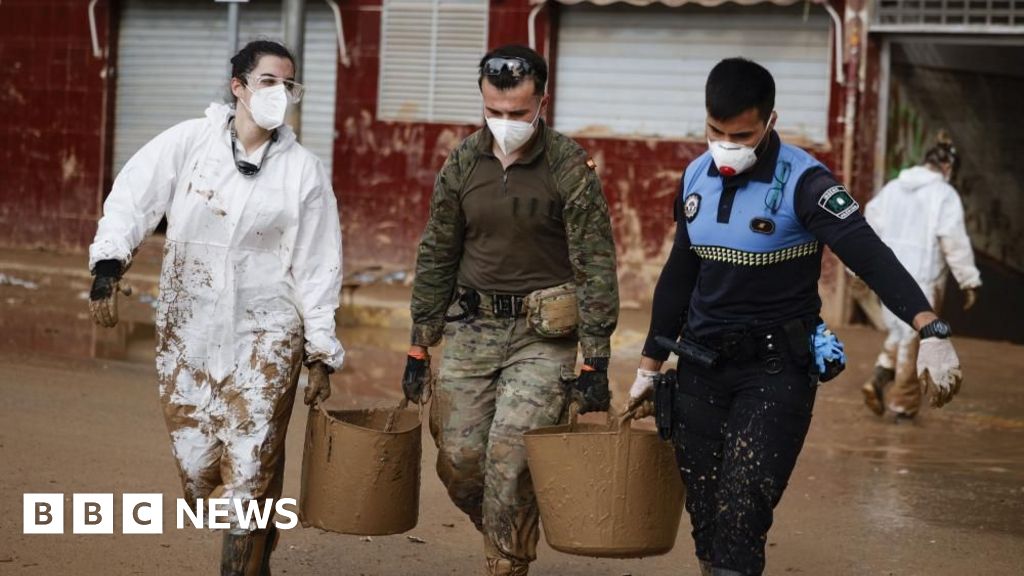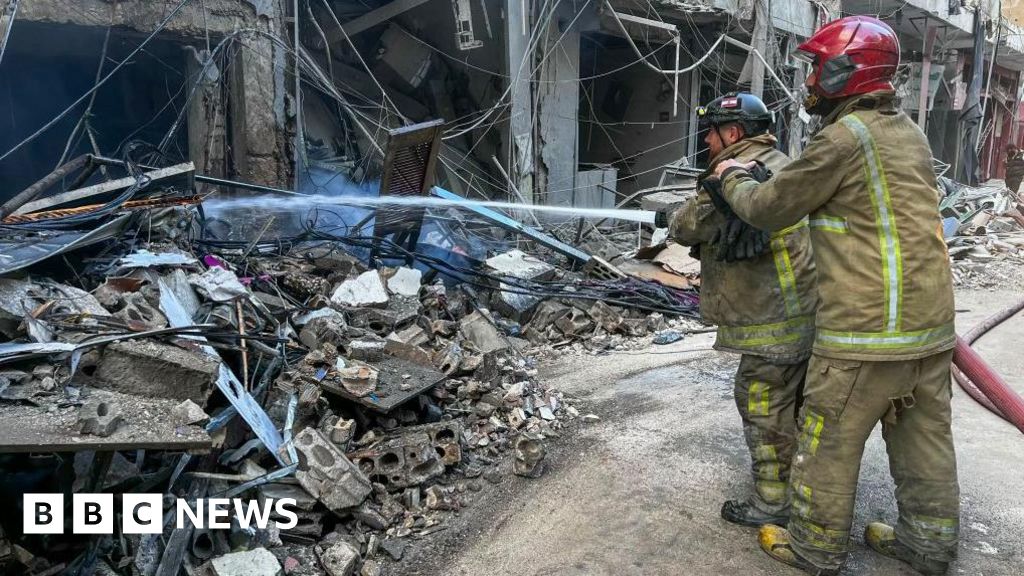ARTICLE AD BOX
By Rob Cameron
BBC News, Prague
Image source, Getty Images
Image caption, Andrej Babis (centre) is facing two opposition coalitions and is competing with the far rightThe people of the Czech Republic go to the polls this weekend, as billionaire-turned-politician Andrej Babis seeks another four years in office.
Mr Babis, leader of the populist ANO party, faces a tough challenge from the centre-right opposition and also has the far right nipping at his heels. And his fate is intertwined with the health of ailing President Milos Zeman.
A few weeks ago, Mr Babis took to Twitter. He had something on his mind:
Bikes instead of cars? I don't want that! Do you?
The tweets came thick and fast.
Tax rises? I don't want that! Do you?
They want to let Brussels decide everything. I don't want that! Do you?
They would punish the honest and hard-working. I don't want that! Do you?
And on and on, in an almost Trumpian stream of consciousness.
The target was clear; the opposition Pirate Party and others the prime ministers dismisses as "neo-Marxists" and "eco-terrorists".
If Mr Babis's voters were left in any doubt, shortly afterwards there was a video, showing a rabid horde of millennials waving placards reading "Refugees Welcome!", "Tax People's Flats!" and "Lower Pensions!".
The slogan: "I don't want that. Do you?"
Image source, EPA
Image caption, Czech voters having to isolate because of Covid are allowed to vote at drive-in polling stationsThe strategy appears to be to scare the living daylights out of ANO's older, less educated voter base and make sure they're mobilised for the two-day election on Friday and Saturday.
Unlike Donald Trump, it's doubtful Andrej Babis actually types any of this stuff himself.
ANO's campaign relies heavily on a professional, well-oiled marketing machine, with PR gurus tweaking every tweet and Facebook post.
Fighting on two fronts
So far it's served him well, but will it be enough this time around?
Mr Babis, who now adopts a clenched-fist, pugilistic pose on campaign billboards, is fighting this election on two fronts.
On one flank are two opposition coalitions. Spolu (Together) is a group of three conservative and Christian Democrat parties.
PirStan is a coalition between the Pirates - who already control the capital Prague - and Stan, a grassroots movement formed by local mayors and independents.
Image source, Reuters
Image caption, Petr Fiala (rigth) is the Together coalition's candidate for prime ministerBut he's also competing with the far right.
Tomio Okamura and his SPD party are looking to capitalise on fear of migrants, economic insecurity and anti-vax sentiment.
They have lofty ambitions for a place at the top table when the post-election negotiations begin. Their price for entering government: a referendum on leaving the EU.
'It wasn't pretty'
"The Czech Republic is at a crossroads, between old and new, east and west if you like," said Ludek Stanek, a commentator and stand-up comedian.
"The general concern is that we will be pushed more into the Russian sphere. And that's something you don't want because I remember the Russian occupation, and it wasn't pretty. It's wasn't fun," he added.
Some believe Mr Babis is so isolated and his coalition potential so reduced that a government with the far right will be his only path to staying in power.
But surely this Nato and EU member is too tightly locked into Western structures for any political arrangement to change that?
"You're from Britain!" said Ludek Stanek. "You were locked into the European Union and within five years you were out!"
Pandora's box
All this was already fraught before Mr Babis was named in the huge Pandora Papers leak, which revealed he had used offshore companies in the British Virgin Islands to acquire property worth $22m on the French Riviera.
He counters that the transactions were totally legal, the money was fully taxed, and anyway they took place in 2009, years before he entered politics. He's threatened to sue the Pirate Party's dreadlocked leader for calling the transaction "money-laundering".
But the Pandora leaks are far from Mr Babis's biggest problem.
His political future lies in the hands of ailing President Milos Zeman.
Mr Zeman, who has already said he will vote for ANO, says he will nominate the leader of the largest party to form a new government. This will almost certainly be Mr Babis.
The president describes the opposition coalitions as a "fraud" on the electorate.
Image source, Getty Images
Image caption, Rumours that the ailing president is seriously ill have been deniedBut Mr Zeman is not well.
The 77-year-old president, a heavy smoker and former heavy drinker, suffers from Type 2 diabetes and uses a wheelchair.
He was recently hospitalised for eight days with no official explanation. After two days of silence his spokesman responded with a cryptic tweet quoting the Bible.
The president's office later announced Mr Zeman was suffering from exhaustion and dehydration. But there were new rumours this week, officially rebutted, that his condition was more serious.
His chancellor was even forced to deny in a radio interview that he was dead.
No, he said, he was looking forward to casting his vote on Friday and playing an active role in post-election negotiations.
If for whatever reason he is unable to, there could be even more uncertainty.

 3 years ago
69
3 years ago
69








 English (US)
English (US)